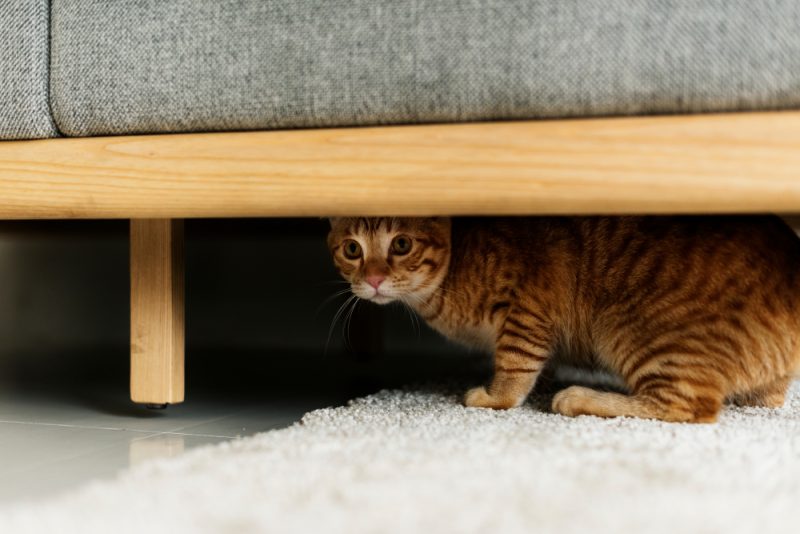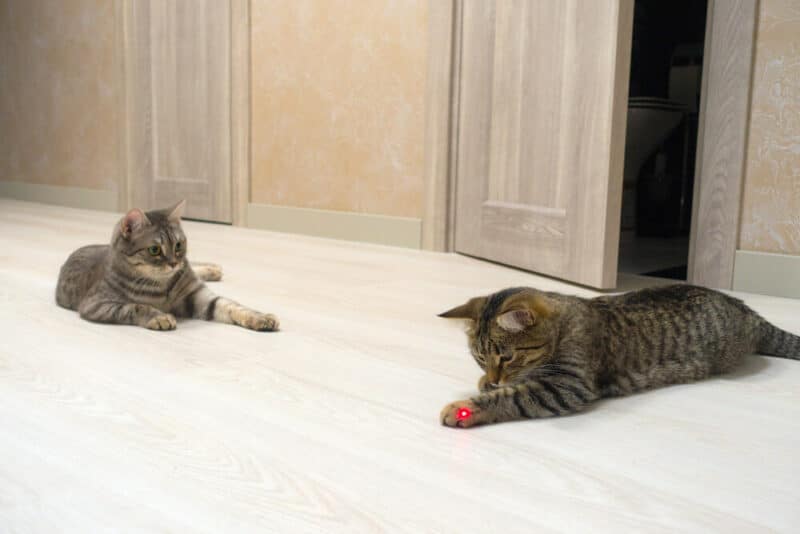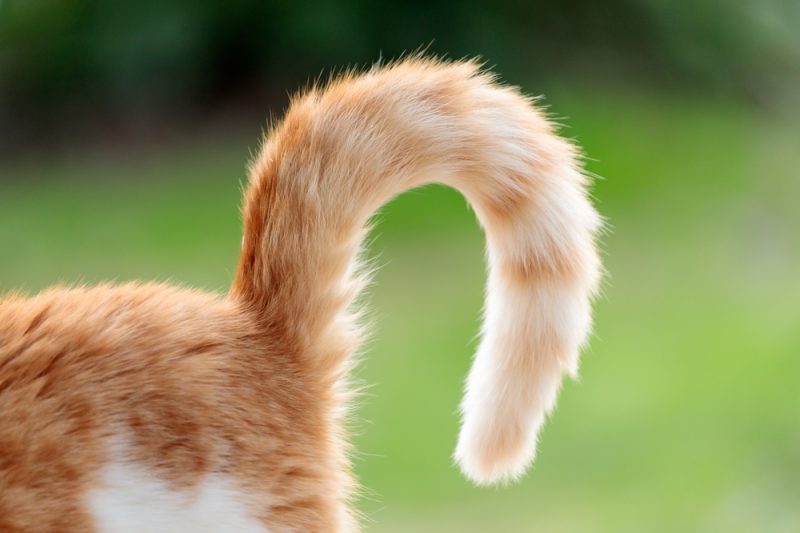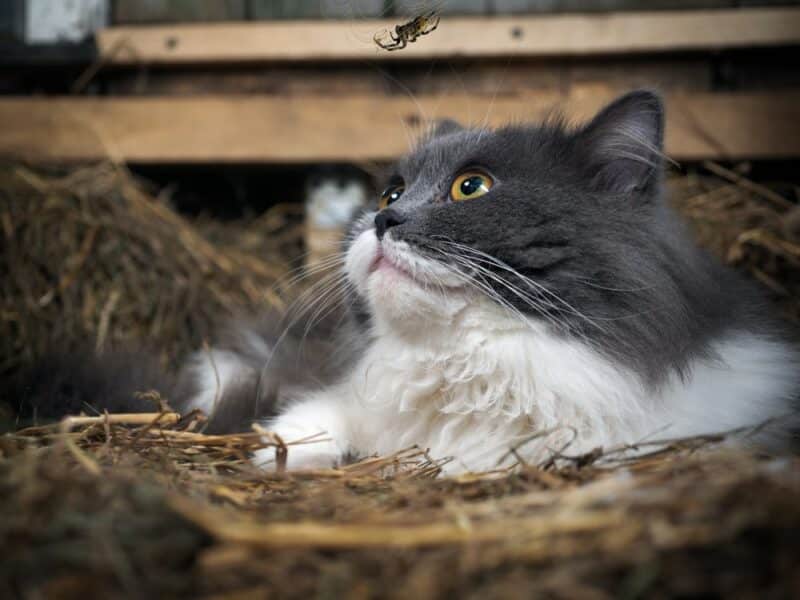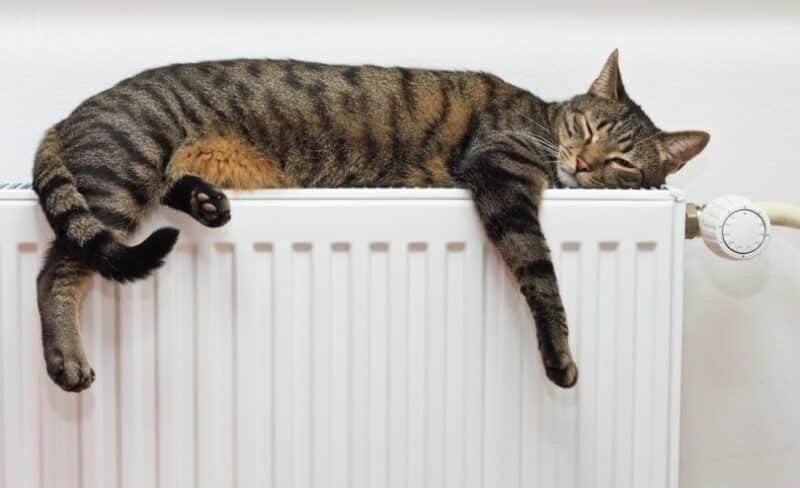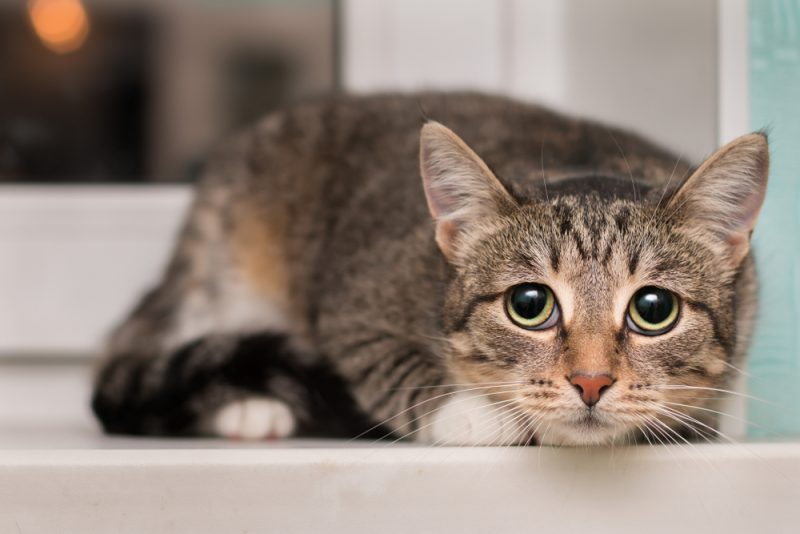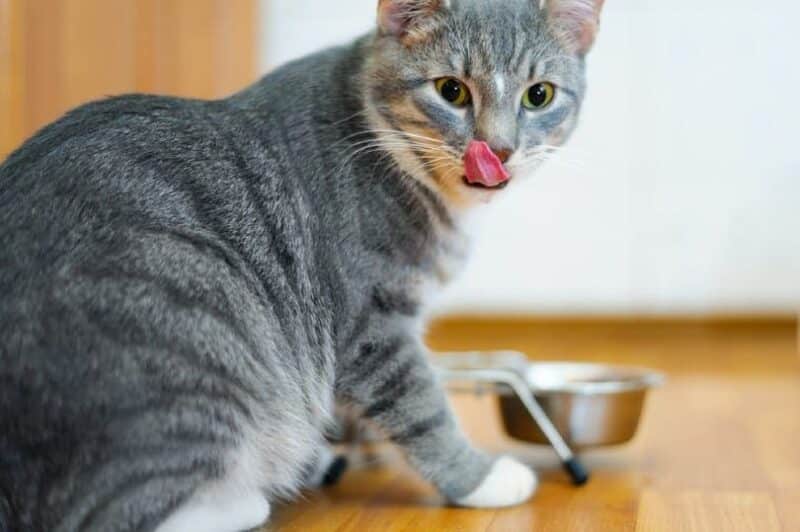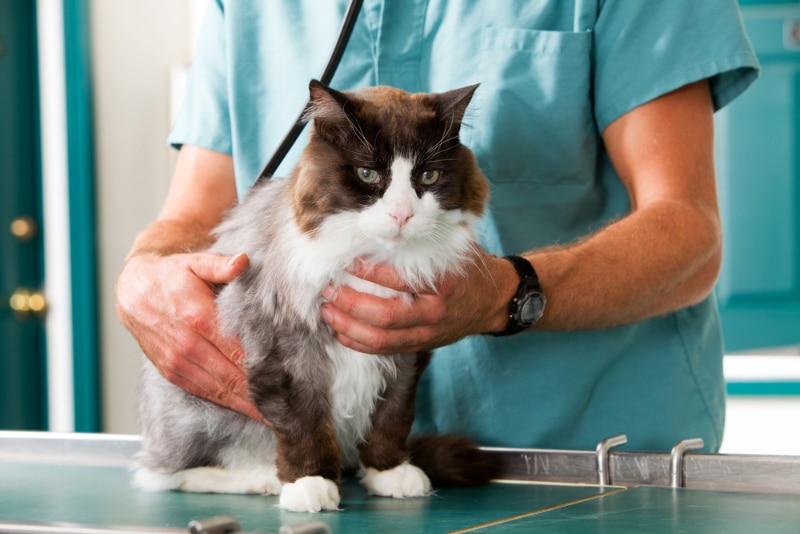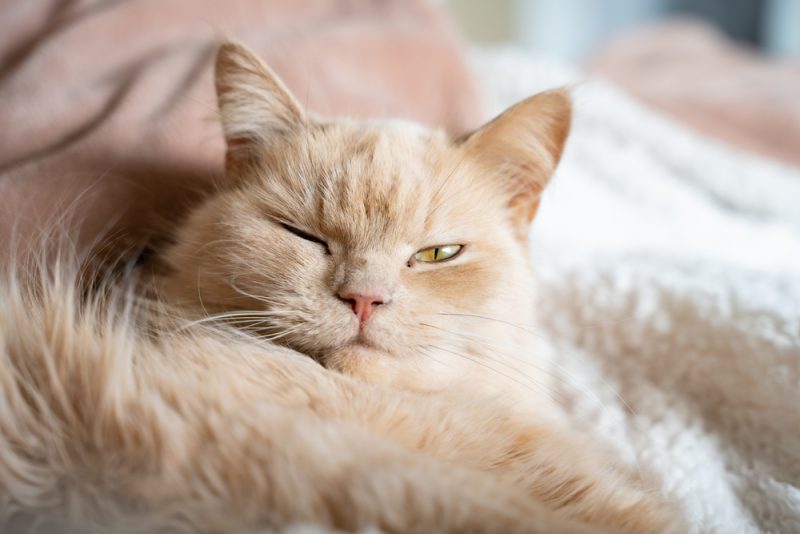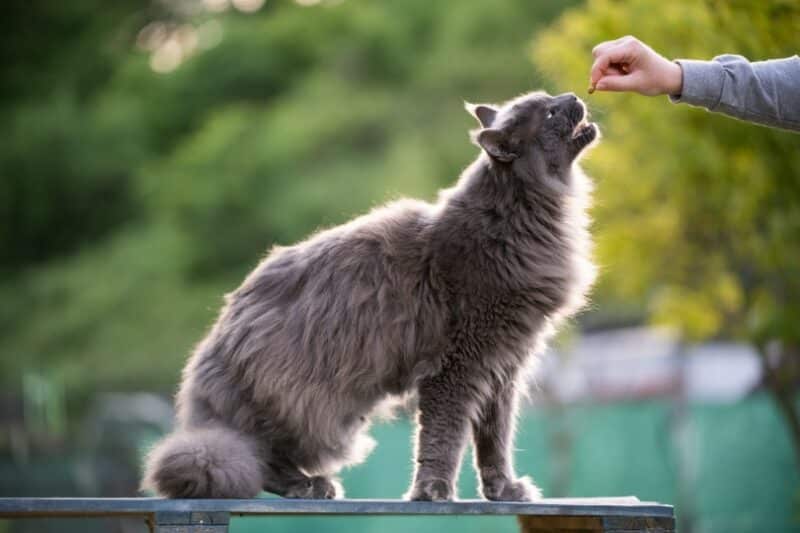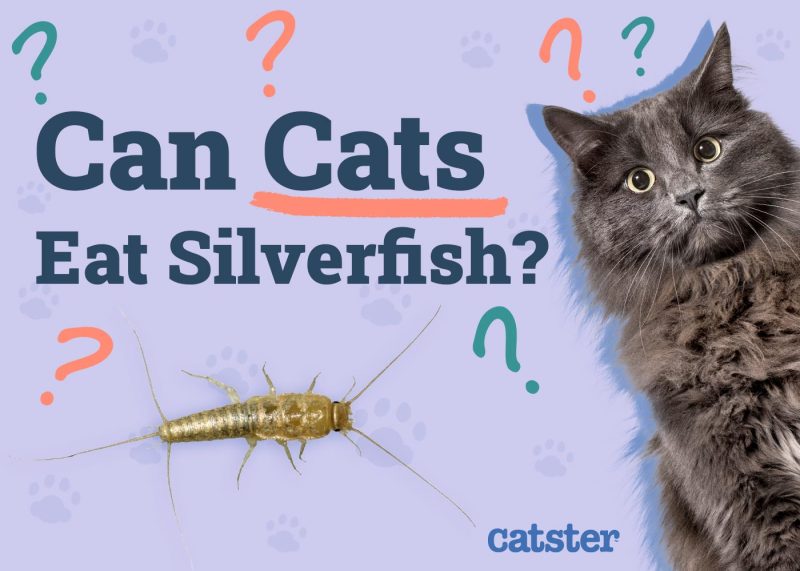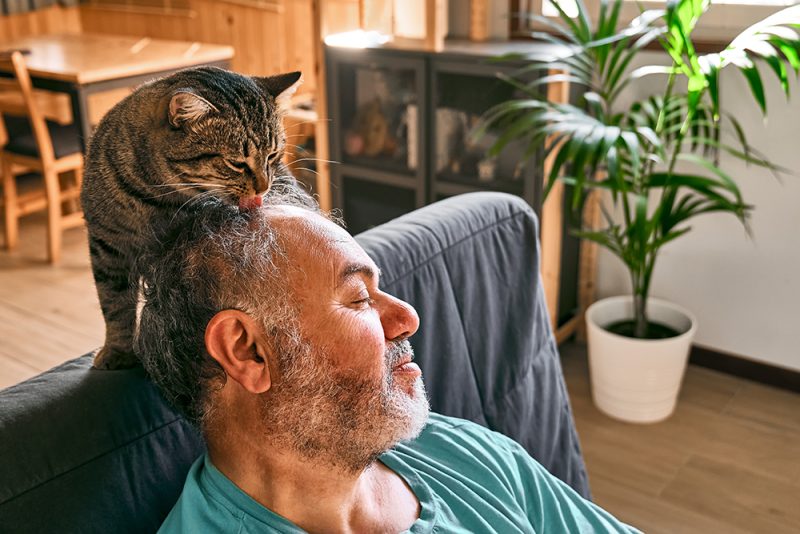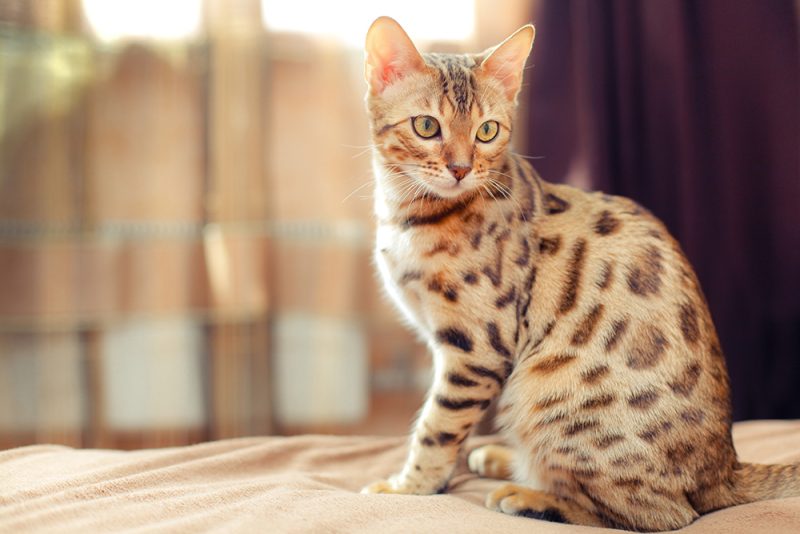In this article
View 5 More +You adopted your kitty from the shelter and can’t help but wonder at some of her behaviors. Certain noises trigger her flight from the room. Certain objects cause her to hiss. Could your cat have PTSD?

Can Cats Have PTSD?
While we don’t commonly refer to cats as having PTSD, the truth is they certainly can have behaviors that are triggered by sights, sounds, smells, and actions. Stressful triggers could range from a storm outside to being taken to a family member’s house for pet sitting while you’re out of town.
Cats that have gone through traumatic events may show fear-related behaviors or even aggressive behaviors in response to certain stimuli.
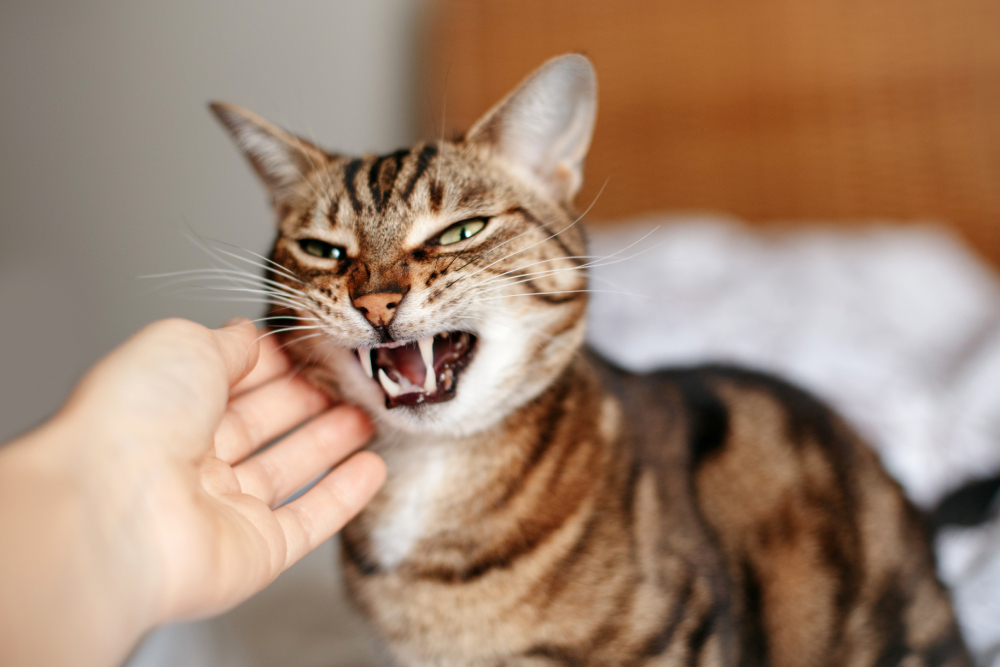
What Are the Signs of PTSD in Cats?
Signs of stress or PTSD can be challenging to identify in some pets, while other cases are pretty clear-cut. It can take time to become attuned to the behaviors of our furry family members.
- Avoidance behaviors
- Making attempts to flee the situation
- Avoiding eye contact
- Hiding or climbing to an out-of-reach area
- Pacing
- Crouching to make the body as low and least visible as possible
- Easily startled
- Hyper-focused on what is going on around them
- Decreased appetite
- Panting
- Increased vocalizing
- Destructive behaviors
- Aggression, especially in response to specific triggers
- Eliminations outside of the litter box
What Are the Causes of PTSD in Cats?
Our cats can’t directly tell us what’s bothering them, so it can be challenging to identify things that stress your cat out or trigger an episode of panic or aggression. Things could also have happened when you weren’t in their life, such as being abandoned by a previous owner, which can lead to PTSD in your cat.
Some cats experience physical abuse at the hands of humans in their lives. These cats are much more likely to develop PTSD.
- Hitting or shaking the cat.
- Tossing him out of a moving vehicle.
- Shooting the animal.
If your cat sees an action or object that reminds them of that event, they may become severely stressed. Even something as seemingly innocuous as going to the vet can be a painful trigger. Loud sounds can also trigger stressful responses in our cats. Storms, fireworks, trains, and more can all be scary noise sources that send our cats fleeing.
While abandonment or neglect are more likely to be identified as a PTSD-inciting event, lack of attention can also foster PTSD in your cat. These cats would lack vital interactions and socialization that help make for a happy and healthy feline.
You might not think of illness as causing PTSD, but it can be a significant factor in how your cat responds to stimuli. If your cat has arthritis pain, it could associate jumping on the couch with pain and start to avoid it. Did your cats get into a fight? One or both cats might start to avoid the other. This can also be a reason why cats start to avoid using the litter box.
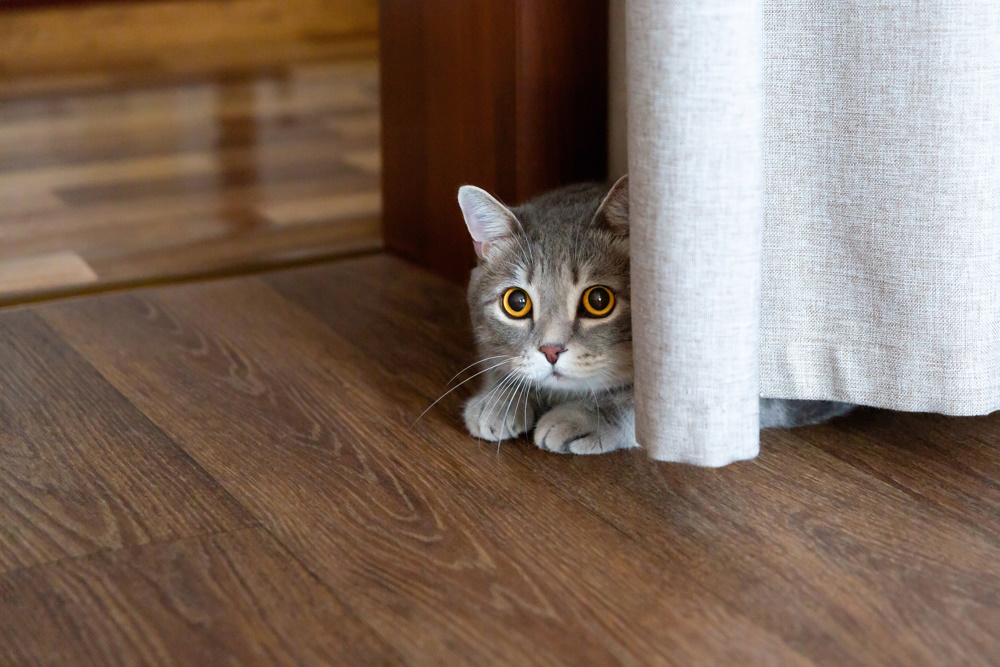

Diagnosing PTSD in Your Cat
If you notice abnormal behaviors in your cat, contact your veterinarian for an appointment. Your vet will start by taking a thorough history and performing a comprehensive physical exam, looking your cat over from nose to tail. The vet will look for physical changes that could account for these behaviors, like a painful hip.
Your veterinarian might suggest diagnostics to assess your cat more in-depth. Blood work can look for metabolic changes, while a urinalysis might reveal a urinary tract infection. Radiographs (X-rays) are helpful to check for bladder stones or areas of arthritis.
Some veterinarians, particularly behaviorists, may need to visit your home to watch how your cat reacts to different scenarios. Videos of your cat’s movements, interactions with other pets and family members, and where they hide can all provide vital information to your veterinary team.

How Do I Care for a Cat With PTSD?
The first step in caring for a cat with PTSD or anxiety is identifying that there is an issue. The extent of the anxiety will help determine what steps you need to take to help your cat.
1. Environmental Changes
If something in the environment triggers your cat, can you remove it? Sometimes, rearranging the furniture and adding a cat tree or scratcher can make a significant difference. A TV set or white noise machine may provide soothing background noise to help keep loud sounds from causing panic.
If you have multiple cats or other animals, ensure everyone has a safe space to go. You should have at least one litter box for each cat plus an additional one, and they should be placed in different areas around the house.

2. Behavioral Modification
Counterconditioning your cat can be difficult, but it is a great way to help it develop more positive associations with certain stimuli. Working with an animal behaviorist is often the best way to utilize behavioral modification practices because what works for one pet may not work for another.
3. Medication
Veterinarians use several medications to reduce anxiety. These medications are most effective when combined with behavioral modification.
- Fluoxetine (Prozac)
- Amitriptyline (Elavil)
- Gabapentin
Some supplements, such as the Purina Calming Care Probiotic, are helpful. Pheromone products like Feliway are not traditional medications but can help reduce your cat’s stress and anxiety. Combine pheromones with a product like Cat Attract litter to encourage your cat to use the litter box.
4. Enrichment
Enrichment activities are vital to your cat’s well-being. They often provide mental and physical interactions and can also build the human-animal bond between you and your cat. Puzzle toys and even building obstacles for your cat to investigate are both great ways to enrich your cat’s environment.


Frequently Asked Questions
Do cats get traumatized after a cat fight?
Cats can certainly be traumatized after a cat fight, especially if an aggressor constantly bullies one of your cats. The affected cat might become more withdrawn, fearful, and jumpy. They might eat less or start urinating outside of the litter box.
Do cats remember traumatic events?
Cats can remember the good and the bad that happen to them. Even if they happen once, adverse events can leave a lasting impression and affect your cat’s behavior for years if you don’t intervene.

Conclusion
Cats can have PTSD, but we don’t often call it that or describe it as such. Anxiety-inducing events should be addressed through positive methods like counterconditioning when possible. Your veterinarian might also suggest medication as a means of helping your cat.
Featured Image Credit: Rawpixel.com, Shutterstock

